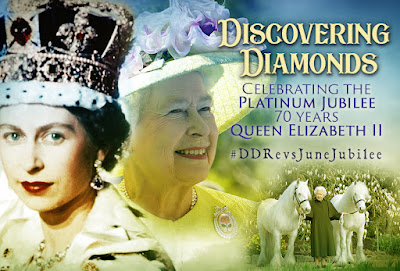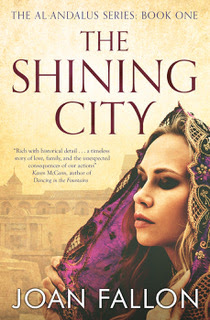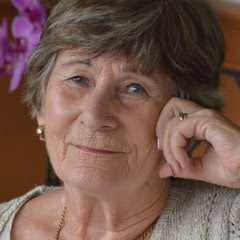To celebrate Her Majesty, Queen Elizabeth II's Platinum Jubilee Discovering Diamonds is hosting a series of excerpts or articles written by our wonderful review team. For our author reviewers: the theme is an excerpt from one of their novels portraying royalty - or an equivalent leader-type character. For our non-writer reviewers: a favourite monarch and/or novel about Royalty... In other words, an enjoyable mix of entertainment to acknowledge Queen Elizabeth II's longest reign in British history! 70 years!
God Bless you Ma'am.
(say ma'am to rhyme with 'jam' not 'farm')
The Shining City, al-Andalus Trilogy Book 1
by Joan Fallon
Caliph Abd al-Rahman III
When he arrived, al-Rahman’s son and his ministers were standing by the
throne, waiting for him and the walls of his royal reception room were lined by
Palace Guards, all resplendent in their usual green and gold livery. The guards were all tall men, mostly Slavs
from eastern Europe who were, more often than not, referred to as ‘the silent
ones’ because they spoke so little Arabic.
Their lack of culture made no difference to him; they were strong, brave
men and they were loyal to the Khalifa.
He walked to his throne and sat down to await the
arrival of his visitor. The air was
heavy with expectancy. His son smiled at
him and bowing low, said, ‘As-salam alaykum, father. Here is your sceptre.’
He handed the royal insignia to his father.
‘Wa alaykum e-salam, my son.’
Al-Rahman III looked around his reception room. No visitor could fail to be impressed. He sat on a raised throne at the end of a
long room; above his head was a ceiling of pure gold, supported by two rows of
red and white horseshoe arches, each one resting on a column of blue
marble. Behind him, was an identical
arch and on either side the stucco-covered walls were carved from floor to
ceiling in exquisite patterns of birds, plants and flowers, all delicately
painted in reds and blues; the floor, made from the finest marble and polished
like glass reflected it all back to him.
Everything about the room was a feast for the senses. From the twelve gold statues, cast in the
shapes of animals and birds and encrusted with precious jewels, that poured
clear spring water into a huge green marble basin, a gift from the Emperor of
Constantinople, to the suspended tank of mercury that dazzled the beholder
whenever the sun’s rays touched it, it all spoke of wealth and power.
He raised his hand to indicate he was ready to receive
his visitor. The outer doors opened and
in came the ambassador. The ambassador
advanced a third of the way into the room then stopped and bowed. After a moment’s wait he walked the same
distance and repeated his action. Then
and only then, following the protocol of the court, was he permitted to
approach the Khalifa’s throne and kiss his hand.
‘Welcome to my humble home,’ al-Rahman said. ‘As-salam
alaykum.’
‘Wa alaykum e-salam, Abd al-Rahman, Defender of the
Faith. I bring you greetings from my
lord and master, al-Muti, Khalifa of the Abbasid dynasty and ruler of all
Baghdad.’
Al-Rahman looked carefully at the ambassador. Surely he realised that news had already
reached al-Andalus that the Khalifa of the Abbasid dynasty was in trouble and
that his kingdom was on the verge of breaking up. Ruler of all Baghdad? He was barely ruler of his own court.
The ambassador clapped his hands once and a stream of
servants entered, each carrying a gift for al-Rahman. These they placed on the ground in front of
him: exotically carved ivory boxes, exquisite pottery, silver jewellery, gold
amulets and much more.
‘This is most
generous of your master,’ al-Rahman said and motioned for his own
servants to reciprocate. ‘Please convey
my most grateful thanks to Khalifa al-Muti.’
This was one way to show that pathetic ruler in
Baghdad, who continued to call himself Khalifa even though his power had
diminished, that al-Andalus was capable of sending him gifts that were even
more magnificent than anything Baghdad could offer. He leaned back and watched as his servants
paraded past, showing the ambassador the wonderful gifts he was to take back to
his master: embroidered textiles, bales of silk so fine that the light could
pass through it, delicately woven cotton, richly patterned rugs, scented
candles, ivory from North Africa that was finely carved with the names of
al-Rahman III and al-Muti; there were saddles stuffed with precious aromatics,
slaves and pure bred Andalusian horses.
All these the ambassador would take back to Baghdad as a sign of the
Khalifa’s power and generosity.
Once all the intricacies of court protocol had been
completed, Abd al-Rahman indicated that his ministers should withdraw and leave
him and the ambassador alone.
‘So, ambassador, you have spent some days in Córdoba
already, I believe?’
‘Yes, your excellency.
It is a marvellous city.’
‘I hope you had the opportunity to visit our
universities. They are the hub of
learning for all the western world.
Savants and professors from all over the world come here to study. Our libraries contain over four hundred
thousand books.’
‘They are very impressive, my lord.’
‘I hope, ambassador, that when you return to Baghdad
you will encourage your learned men to visit our city. They will not be disappointed, I can assure
you. Muslim scholars are always welcome
here.’
‘The fame of your city for wisdom and learning has
already reached us. I think you will
find that many of our philosophers and writers are already here.’
‘And its beauty, too, I hope.’
‘Of course, my lord.’
‘Now that you are my guest, here in Madinat al-Zahra,
you must stay a while and enjoy my new home.
You will find that everything you have seen in Córdoba has been
surpassed by the beauty of this city. We
have created buildings that are truly unique.
My architects have taken ideas from Damascus, from our own Roman and
Visigoth predecessors and put their own mark on them; they have created an
architecture that is truly unparalleled in its beauty. In centuries to come, people will look at my
palaces and say, not that they are Visigoth palaces, nor Roman, not that they
are Omayyad, but that they are the work of the Iberian Omayyads, of the
khalifas of al-Andalus.’
‘Indeed they will, my lord.’
‘Now you must leave me. My son, al-Hakim will speak to you about
other matters.’
He watched the ambassador rise and bow his way out of his presence. Later he would speak to Hakim and find out how his meeting had gone. He knew he could trust his son to impress the ambassador and ibn Shaprut would be there too; he would work his charm on the meeting and make sure all went well. Yes, those two men could be relied upon to impress the ambassador. Of all his children, Hakim was the most sensitive and cultured. His love of books was greater even than his own; it was his son’s dearest wish to expand the libraries both in Córdoba and here in Madinat al-Zahra. Al-Rahman knew he would do his best to persuade the ambassador to send them more men of learning from the universities in Baghdad.
About the author:
A history graduate, turned teacher and now self-published author, Joan's writing encompasses both historical fiction, contemporary women’s fiction, non-fiction and more recently crime fiction. Born in Dumfries, Scotland, she has been living in Spain for the last twenty-four years. Many of her novels are set there, particularly the historical ones which focus on two distinct periods in the country’s history, the Spanish Civil War and Moorish Spain. To date she has written and published seventeen books. She is a member of the Society of Authors and the Alliance of Independent Authors.
https://www.facebook.com/joanfallonbooks
https://joanfallon.co.uk/blog/
https://www.joanfallonbooks.com
https://twitter.com/joan_fallon
Buy the Book
s



I've had the pleasure of reading all the books in this series - and I was as struck as I always am by Joan's knowledge of Moorish Spain.
ReplyDeleteThis looks most interesting...adding to the (endless) TBR list!
ReplyDelete